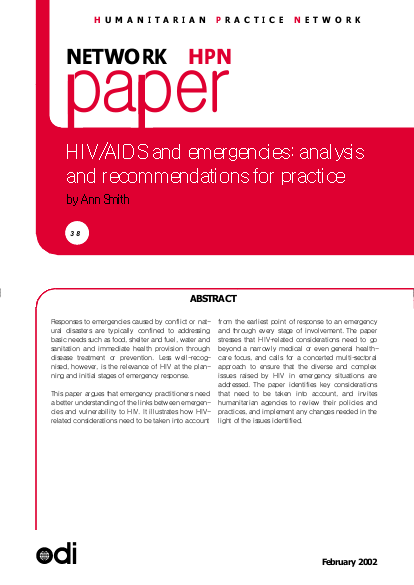Analysis and Recommendations for Practice

Responses to emergencies caused by conflict or natural
disasters are typically confined to addressing
basic needs such as food, shelter and fuel, water and
sanitation and immediate health provision through
disease treatment or prevention. Less well-recognised,
however, is the relevance of HIV at the planning
and initial stages of emergency response.
This paper argues that emergency practitioners need
a better understanding of the links between emergencies
and vulnerability to HIV. It illustrates how HIVrelated
considerations need to be taken into account
from the earliest point of response to an emergency
and through every stage of involvement. The paper
stresses that HIV-related considerations need to go
beyond a narrowly medical or even general healthcare
focus, and calls for a concerted multi-sectoral
approach to ensure that the diverse and complex
issues raised by HIV in emergency situations are
addressed. The paper identifies key considerations
that need to be taken into account, and invites
humanitarian agencies to review their policies and
practices, and implement any changes needed in the
light of the issues identified.